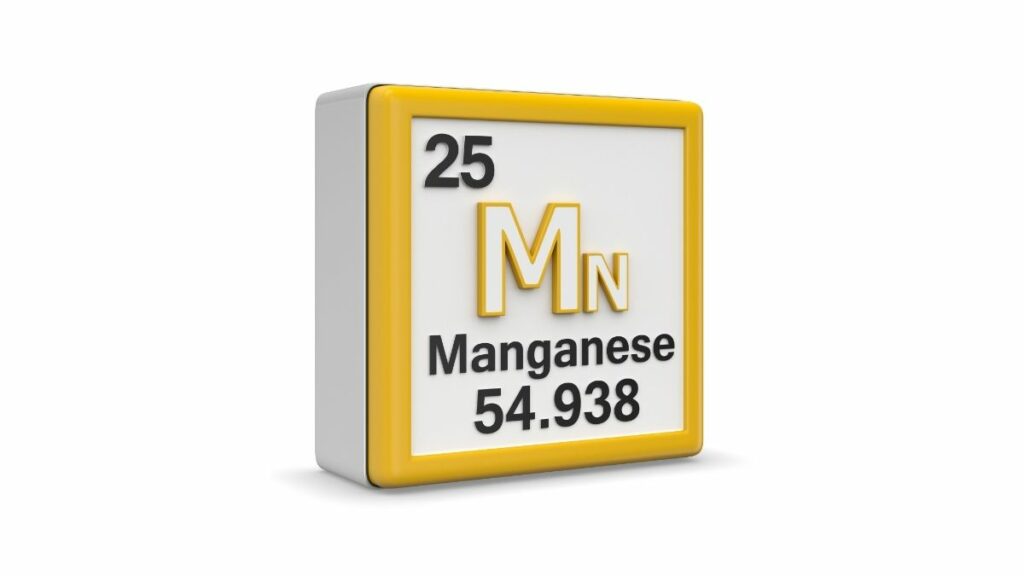Manganese is an essential mineral that plays a vital role in the human body. It is required for the normal development and function of the brain, bone, and connective tissue, as well as the metabolism of carbohydrates, amino acids, and cholesterol. Manganese also acts as an antioxidant and plays a role in the production of enzymes that are important for growth and development.
Manganese deficiency is rare, but it can lead to a number of health problems, including stunted growth, poor wound healing, and abnormal bone development. The recommended daily intake of manganese for adults is 2.3 to 2.6 mg per day.

Manganese is found in a variety of foods, including:
Some of the richest dietary sources of manganese include:
It is worth noting that the manganese content in foods can vary depending on factors such as soil quality and farming practices. Industrial and intense farming is also depleting the land from many vital trace elements including Manganese. Cooking or processing method can also affect the manganese content of food.
Manganese from dietary sources is generally considered safe, however, high intake from supplements should be avoided as excessive amount can be harmful.
Manganese plays important role in human health, and its deficiencies or excess can lead to certain health problems. The following are some of the key health benefits of manganese:
It is important to note that more research is needed to understand the full extent of the health benefits of manganese and how it interacts with other nutrients in the body. However, getting enough manganese from diet is important for maintaining overall health.
Yes, manganese plays a role in metabolism. It is an essential mineral that acts as a cofactor for a number of enzymes that are involved in metabolic reactions. Manganese is required for the metabolism of carbohydrates, amino acids, and cholesterol.
One of the main enzymes that manganese helps activate is called superoxide dismutase (SOD). This enzyme is an important antioxidant that helps to protect the body’s cells from damage caused by free radicals.
Manganese is also involved in the metabolism of glucose, it helps activate enzymes that break down glucose in order to produce energy. Manganese also plays a role in the production of insulin, which regulates blood sugar levels.
Additionally, Manganese plays a role in lipid metabolism, it activates enzymes that are involved in the breakdown and synthesis of fatty acids and cholesterol.
Overall, Manganese plays a crucial role in various metabolic process, a deficiency in manganese can cause problems in metabolism and other processes. Therefore, it is important to have enough manganese in our diet to maintain a healthy metabolism and overall well-being.
Yes, manganese plays a role in the immune system. It helps activate enzymes that are involved in immune system function, specifically it supports the activity of certain white blood cells called phagocytes which are responsible for engulfing and destroying invading pathogens, such as bacteria and viruses.
Manganese also has antioxidant properties, which can help protect the body’s cells from damage caused by free radicals. This may also help to support the immune system by reducing inflammation and reducing the risk of infection.
It also helps in production of enzymes involved in the production of collagen, a component of the skin and connective tissue, which forms a barrier to infection.
Overall, manganese is important for maintaining a healthy immune system and protecting the body against infection. However, more research is needed to understand the exact mechanisms by which manganese supports the immune system and how it interacts with other nutrients.
Manganese plays a vital role in neurological function. It is required for the normal development and function of the brain and the nervous system. Some of the ways that manganese affects the nervous system include:
StamiLyte has 0.03mg/L of natural ionic Manganese per serving (5ml in 500ml of water) which is well within the recommended daily allowance of 2.6mg. It is important to note that excessive intake of synthetic manganese supplementation can be harmful.